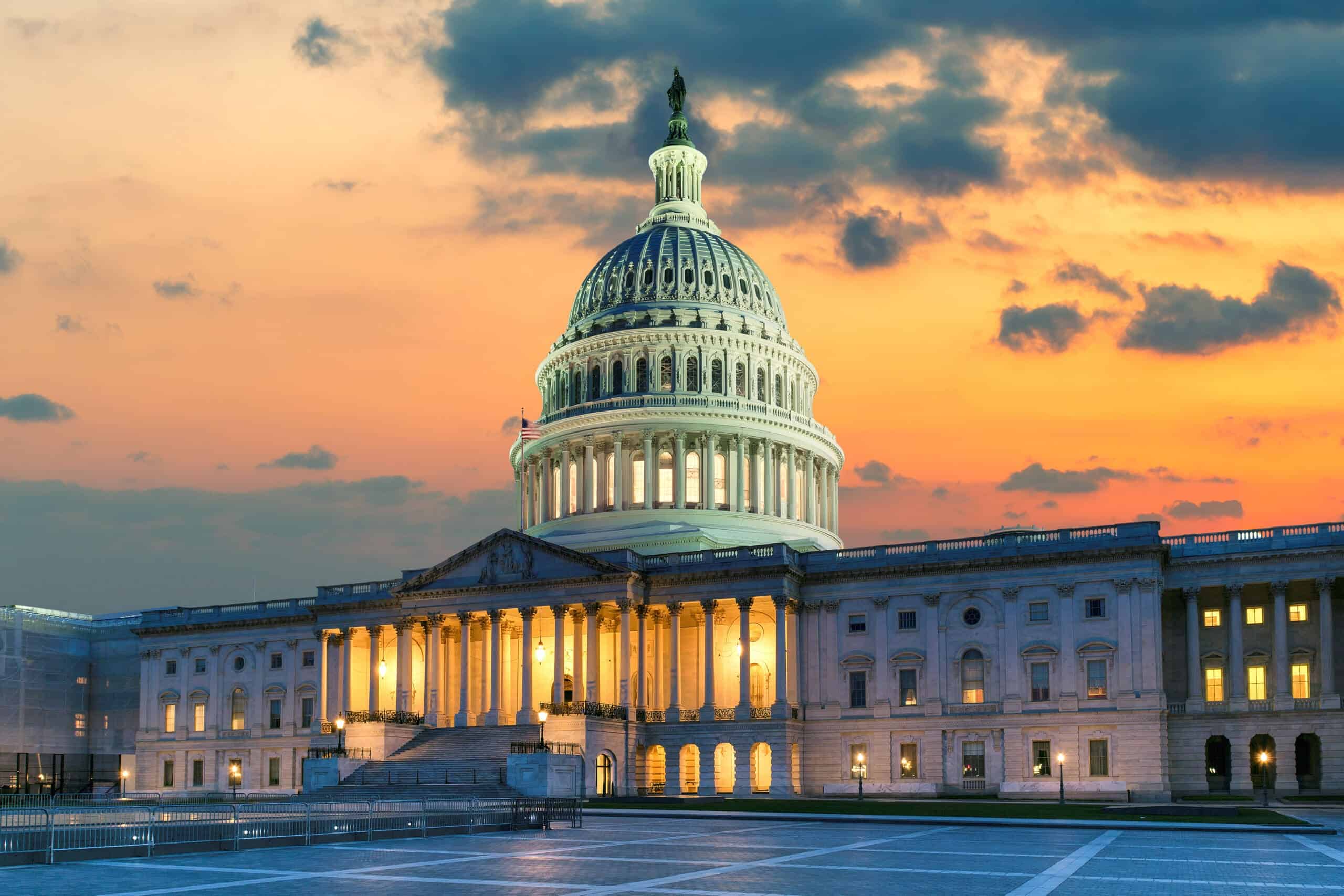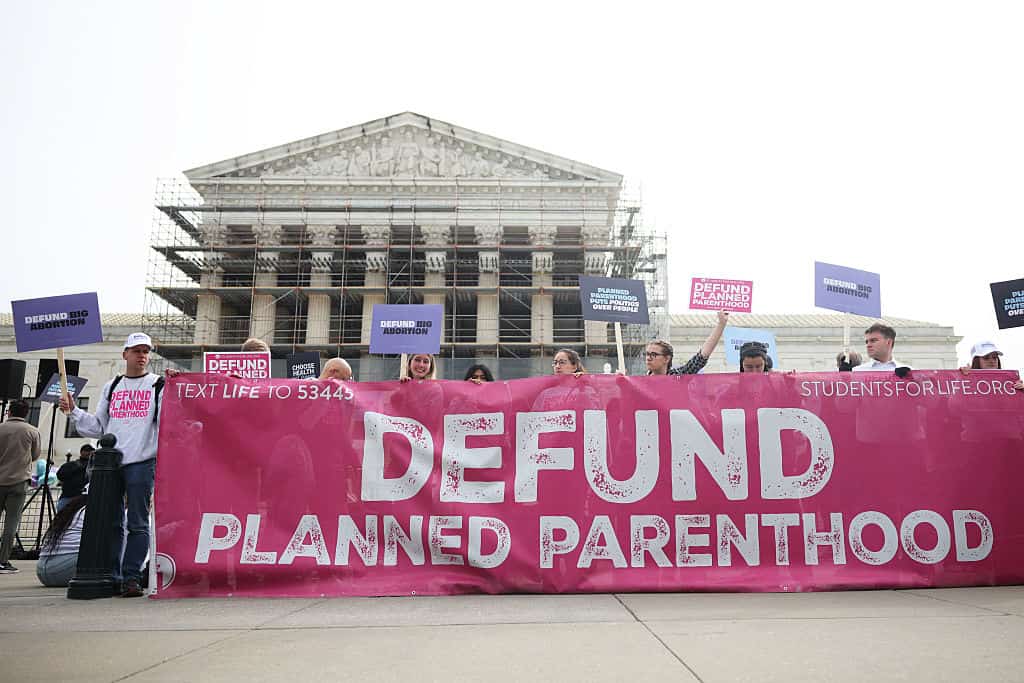Preborn Babies Deserve Federal Legal Protections, Not Just State Protections

This article is the first in a two-part series featuring remarks from the Social Conservatism Conference (SoConCon 2024) held July 23-26 in Washington, D.C. You can read part two here.
Since the U.S. Supreme Court overturned Roe v. Wade on June 24, 2022, there’s been discussion and debate within the pro-life movement over how best to protect preborn children.
Should pro-life advocates advance laws on just the state level? Or should there be a federal prohibition on abortion, protecting babies nationwide after they reach a certain week of gestation, or even at conception?
Many pro-life organizations, including Focus on the Family, affirm that babies deserve to be protected nationwide via federal abortion legislation, in addition to state protections. Whether a preborn baby gets a chance at life should not be determined by their zip code, or what state they live in.
The panel at SoConCon 2024, “Federal Rights for the Unborn,” featured remarks from several experts on the life issue, including Professor O. Carter Snead, Charles E. Rice Professor of Law at the University of Notre Dame; Stephen Billy, Vice President of State Affairs at Susan B. Anthony Pro-Life America; Frank Cannon, Chief Political Strategist at Susan B. Anthony Pro-Life America; and Autumn Christensen, Vice President of Public Policy at Susan B. Anthony Pro-Life America.
Legal Analysis
Prof. Snead asserted that the pro-life movement is at an inflection point following the Dobbs decision.
Indeed, the Supreme Court decided in Dobbs that “there is nothing in the text, history or tradition of our Constitution that forbids the people from restricting abortion, to protect unborn babies from the lethal violence of abortion,” Prof. Snead summarized. “There’s nothing that forbids the states, or the federal government, from doing that” (emphasis added).
Some incorrectly argue that in Dobbs, the Supreme Court returned the issue of abortion back to the states. But that’s not what the Supreme Court said, Prof. Snead pointed out, adding,
The political branches of government can regulate and restrict abortion for the sake of protecting unborn babies, promoting the integrity of the medical profession, and promoting respect for life. The political branches at the state, or federal level, have a legitimate interest in protecting the unborn (emphasis added).
Indeed, Supreme Court Justice Brett Kavanaugh wrote in his concurring opinion in Dobbs, “The Constitution is neutral [on abortion] and leaves the issue for the people and their elected representatives to resolve through the democratic process in the States or Congress” (emphasis added).
Professor Snead continued, pointing out that while states generally have greater authority to regulate the medical profession under the Constitution, the federal government may also do so.
Historically speaking, in our country, states have generally been the principal locus of regulating the medical profession, and promoting the safety, welfare and morals of their people.
But it’s also true that the federal government has historically, and even today, has the authority … to enact laws and regulations that contribute to the building up of the culture of life.
As one example, Prof. Snead cited the Partial-Birth Abortion Ban Act of 2003 which the U.S. Congress approved in 2003, and former President George W. Bush signed into law. The law prohibits physicians from practicing partial-birth abortions, in which a baby is partially delivered (so that the baby’s entire head is outside the mother’s body) and then killed.
After being adopted by the U.S. Congress, the U.S. Supreme Court upheld its constitutionality in Gonzales v. Carhart.
Therefore, it is constitutional for the federal government to enact laws protecting preborn life, and it should do so.
Political Analysis
Some politicians have argued that enacting federal pro-life laws is not politically feasible, and therefore the idea should be abandoned, leaving abortion law up to the states.
But Autumn Christensen pointed out the faulty thinking with that idea.
“You’ve heard some prominent politicians argue that since we’ve got the filibuster in the Senate, there’s really no point [in advocating for federal protections for preborn babies].” The Senate filibuster requires 60 votes in the Senate for a bill to move forward.
“I tell you what, there’s not a Democrat in the Senate who is saying, ‘Let’s hang up the issue and we’ll just let the states decide,’” Christensen argued. “Every one of them is trying to enact the Women’s Health Protection Act … which would impose abortion through all nine months, and even overturn some of the most basic pro-life protections that were in effect under Roe before Dobbs,” Christensen said.
In particular, Christensen mentioned the Heartbeat Protection Bill and the Pain-Capable Unborn Child Protection Act as pieces of legislation to that pro-life individuals and organization should support.
“They’re going to be fighting. We better fight back,” Christensen properly added.
Frank Cannon, while echoing the above comments, added that it is “political malpractice” not to have an argument over late-term abortion at the federal level.
“Sixty-seven percent of the American people want to limit abortion to the first three months,” Cannon noted, citing an April 2023 survey from NPR. And a majority of Americans support limiting abortion to the first 15 weeks.
“There is political consensus. We just need the leadership to take advantage of that. We need people willing to go out there and fight,” Cannon added. “Without the fight, and without the fight federally, our movement dies.”
Conclusion
Recently, Focus on the Family President Jim Daly reiterated Focus’ long held position – we strongly support any law, state or federal, that protects preborn babies from abortion.
“A child’s fate should never be subject to their geography nor the political affiliation of his or her parents,” Daly said. “When it comes to preborn life, a respect for personhood, not party politics, should protect and defend every child, everywhere.”
Focus on the Family has been working to turn the cultural tide and save mothers and babies from abortion for years. Since beginning the Option Ultrasound Program in 2004, Focus has helped save over half a million lives.
Our goal is to save one million babies by 2025. Just $60 will save a life through Option Ultrasound. Will you partner with us to save lives from abortion?
If you are experiencing an unexpected pregnancy and want to learn more about your options, visit My Choice Network.
Related articles and resources:
Counseling Consultation & Referrals
Dealing With Unplanned Pregnancy
Pro-Life Song ‘I Was Gonna Be’ Tops Country Music Charts
Photo from Shutterstock.
ABOUT THE AUTHOR
Zachary Mettler is a writer/analyst for the Daily Citizen at Focus on the Family. In his role, he writes about current political issues, U.S. history, political philosophy, and culture. Mettler earned his Bachelor’s degree from William Jessup University and is an alumnus of the Young Leaders Program at The Heritage Foundation. In addition to the Daily Citizen, his written pieces have appeared in the Daily Wire, the Washington Times, the Washington Examiner, Newsweek, Townhall, the Daily Signal, the Christian Post, Charisma News and other outlets.
Related Posts

Is it ‘Voter Suppression’ to Require Proof of Citizenship to Vote?
February 10, 2026

Education Department Celebrates National School Choice Week
January 30, 2026

New York Ends Fight to Force Nuns to Pay for Abortions
January 27, 2026

